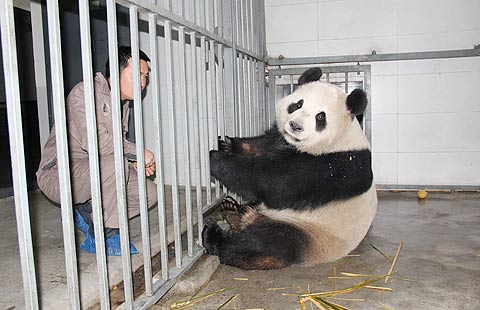US political drama tells much about us
Updated: 2014-02-24 03:30
(China Daily)
|
||||||||
Much has been said and written about House of Cards — the US political drama that everybody seems to be talking about in Beijing — except what can be learned from the hit show.
Some attribute its success on the Chinese Web to a gripping storyline that offers a glimpse into US politics. Some compare it to popular Chinese palace dramas spiced up with plotting, back-stabbing, murder and romance. Others believe the Chinese elements in the drama have helped it win over the Chinese market. Few have seen its relevance to the present Chinese reality, and even fewer have acknowledged what the drama has told us about ourselves.
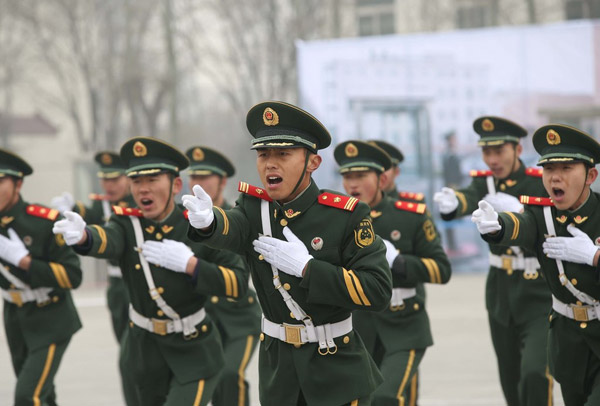 |
|
Officers from the Beijing Armed Police Corps undergo training on Friday. The officers will be responsible for security operations during the upcoming CPC and CPPCC sessions. LI GUANGYIN / FOR CHINA DAILY |
But let's face it: The dramatized wheeling and dealing of US congressmen has striking similarities with the many exposed Chinese scandals involving "tigers", or high-ranking officials, who usually also hold seats at legislative bodies at various levels. The Machiavellian characters remind us of corrupt local officials who climb the ladder by whatever means available, including intricate maneuvering to outdo rivals. For the US politicians' collaboration with business interests, just think of the Chinese government's moves to fight corruption in the oil and gas industry, which has brought down a string of officials in high places.
Chinese audiences can also recognize the sexual exploits of US politicians. As nearly all fallen corrupt officials have been found to have mistresses, Chinese anti-graft authorities use different labels to publicly denounce their promiscuous lifestyles, from "corrupt" to "rotten", which indicate the increasing numbers of their sexual conquests.
Over the years, Chinese researchers have looked at factors that drive public office holders down the treacherous road. One such study has summed up 10 common personality traits that prompted hundreds of Chinese officials to become corrupt. They include a strong need for power, greed, a need for instant gratification, jealousy, risk-taking and expectation of returns. Some officials have more than one such trait, which made their corrupt behavior more aggressive and damaging.
Because of such similarities that transcend borders and ideologies, House of Cards holds up a mirror to Chinese officials on how human weaknesses such as greed and self-centeredness can send them over the cliff, especially when they have unchecked power.
As a primer of the US political system, it may also offer other useful lessons, like a better understanding of the duties of legislators when they serve as advocates for the views and needs of their constituents, although in the show, power plays and self-interest lead congressmen to betray their people.
The reminders have come at an opportune time. Starting early next month, thousands of representatives across the country will come to the Chinese capital to attend the annual meetings of the National People's Congress and the Chinese People's Political Consultative Conference, which are China's top legislature and political advisory body.
Although the two sessions this year are expected to focus on reform and a slew of new, bold policies to improve people's livelihoods, corruption remains a top concern in China, ahead of food safety and second only to social welfare on people's wish lists for their representatives, according to a recent official survey.
It's getting harder to be an NPC deputy not only because of a public that is vigilant about corruption. Those who don't show up at discussions, seldom present a proposal or have never voted against a motion often stir ire among people who expect their deputies to be more proactive in the political decision-making process and vocal on policy debates.
For those officials who have not binge-watched the drama, its lessons and morals may boil down to two things: Be clean and solve problems for your people.
The author is editor-at-large of China Daily.
Contact the writer at dr.baiping@gmail.com.

 Sochi closes Olympics, clearing shadows of doubt
Sochi closes Olympics, clearing shadows of doubt
 China's giant pandas arrive at Belgian zoo
China's giant pandas arrive at Belgian zoo
 Ukrainian parliament dismisses president
Ukrainian parliament dismisses president
 Beijing upgrades haze alert from yellow to orange
Beijing upgrades haze alert from yellow to orange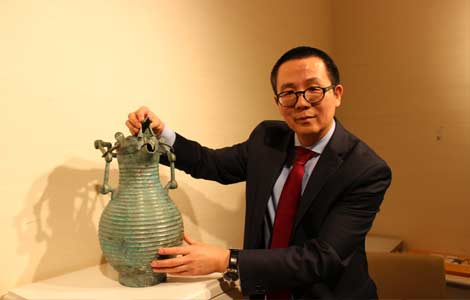
 Rare Zhou bronze wine vessel goes on the block
Rare Zhou bronze wine vessel goes on the block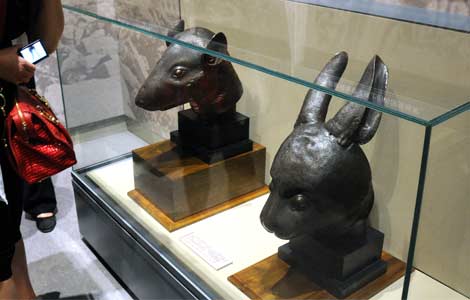
 Reclaiming a heritage lost, stolen or sold
Reclaiming a heritage lost, stolen or sold
 US warns of airline shoe-bomb threat
US warns of airline shoe-bomb threat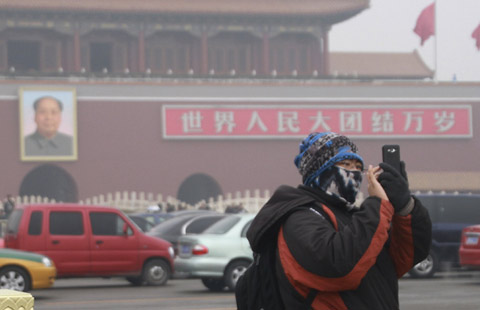
 Beijing issues 1st yellow alert for smog
Beijing issues 1st yellow alert for smog
Most Viewed
Editor's Picks

|

|

|

|

|

|
Today's Top News
Ukraine's new govt needs to seek balance: experts
Hospitals aim to prescribe more security
US political drama tells much about us
Think tank examines South China Sea
People shun outdoors amid smog
Gaokao gets accepted overseas
China urges US to correct mistakes on Tibet
9 punished for spreading flu rumor
US Weekly

|

|


